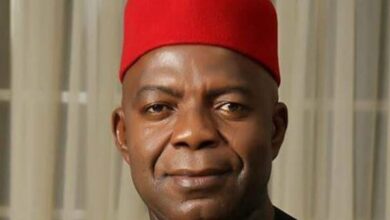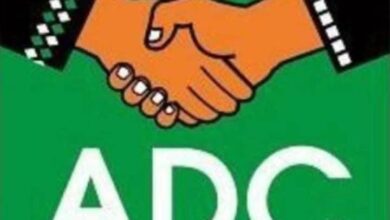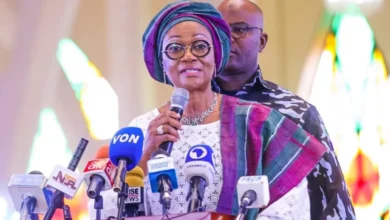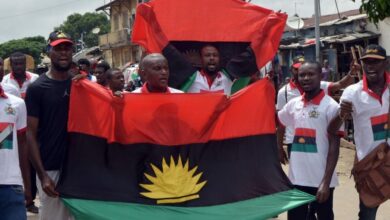JUST IN: Nigeria’s Public Debt Hits ₦152.4 Trillion in Q2 2025 – DMO Raises Alarm
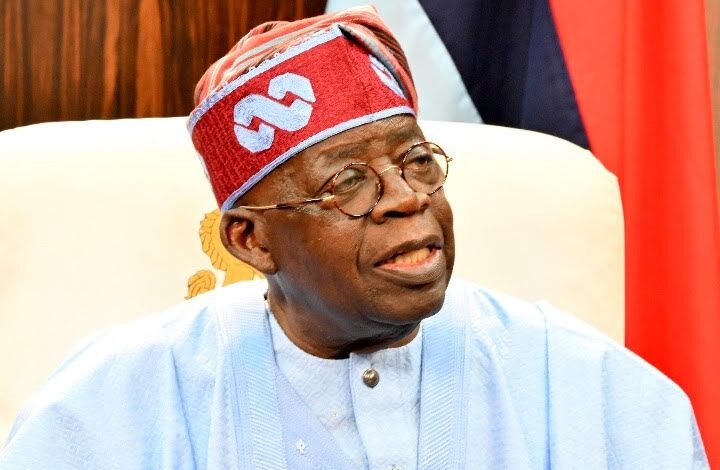
(DDM) – The Nigerian naira has once again fallen sharply against the United States dollar in both the official and parallel foreign exchange markets, signaling persistent instability in the country’s currency management system.
Diaspora Digital Media (DDM) gathered that as of Monday, October 6, 2025, the naira exchanged at ₦1,470.26 per dollar in the official market, compared to ₦1,465.68 last week, representing a depreciation of ₦4.58.
At the black market, also known as the parallel market, the currency slid further to ₦1,505 per dollar, down from ₦1,495 recorded previously.
This marks one of the steepest weekly declines since the Central Bank of Nigeria (CBN) unified the forex window earlier this year.
The drop comes despite a modest increase in Nigeria’s external reserves, which rose to $42.44 billion as of October 3, 2025, according to the latest CBN data.
Analysts say the contradiction between rising reserves and a weakening naira highlights deeper structural problems in the forex system.
Forex traders and Bureau de Change (BDC) operators in Lagos, Kano, and Abuja told DDM that the renewed fall is driven by a surge in dollar demand from importers, students, and multinational firms seeking to repatriate profits.
One trader, Kabiru Ibrahim, explained that “the pressure is overwhelming right now. Importers who can’t access dollars from the official window are flooding the parallel market, and the demand is pushing the rate higher every day.”
The CBN has blamed speculative activities and hoarding by market participants for the instability, noting that some forex dealers deliberately inflate demand to profit from volatility.
Financial analysts, however, believe the situation is a result of policy inconsistency, limited supply of forex, and weak investor confidence in the monetary system.
According to Dr. Tunde Oladimeji, a Lagos-based economist, “The rise in reserves is not translating to market stability because the reserves are largely tied to debt obligations and import financing.
The government needs to rebuild market trust through transparency and predictable policy direction.”
He added that the CBN’s managed float policy, which allows market forces to determine the exchange rate within a guided range, has failed to stabilize the naira due to insufficient dollar inflows from crude oil exports and capital investments.
The depreciation of the naira is already having a ripple effect on the cost of living. Import-dependent sectors such as manufacturing, pharmaceuticals, and consumer goods are facing higher input costs, leading to rising prices across major cities.
Many businesses are also warning that the rising exchange rate could fuel inflationary pressure and further erode the purchasing power of ordinary Nigerians, whose incomes have not kept pace with the cost of goods and services.
According to the National Bureau of Statistics (NBS), Nigeria’s inflation rate stood at 34.1 percent in September, one of the highest in Africa, driven mainly by the depreciating naira and surging food prices.
In the midst of these challenges, the government has announced plans to diversify forex earnings through non-oil exports and encourage diaspora remittances via official channels.
Finance Minister Wale Edun recently disclosed that the Tinubu administration is working with the CBN to attract more foreign investors and stabilize the market through reforms in the foreign exchange management system.
However, experts warn that without concrete policy action and restored public confidence, the naira may continue its downward spiral.
Economist Dr. Ifeoma Nwosu told DDM that “the CBN must act decisively to close the gap between the official and black market rates.
As long as that gap exists, arbitrage will continue, and the naira will remain under pressure.”
As Nigeria’s economy battles inflation, unemployment, and rising debt, the strength of the naira remains a key test of government credibility and economic reform.
With year-end import demands approaching and festive spending expected to surge, currency analysts predict that the naira could cross ₦1,520 per dollar if supply constraints persist in the coming weeks.
Post Views: 118

